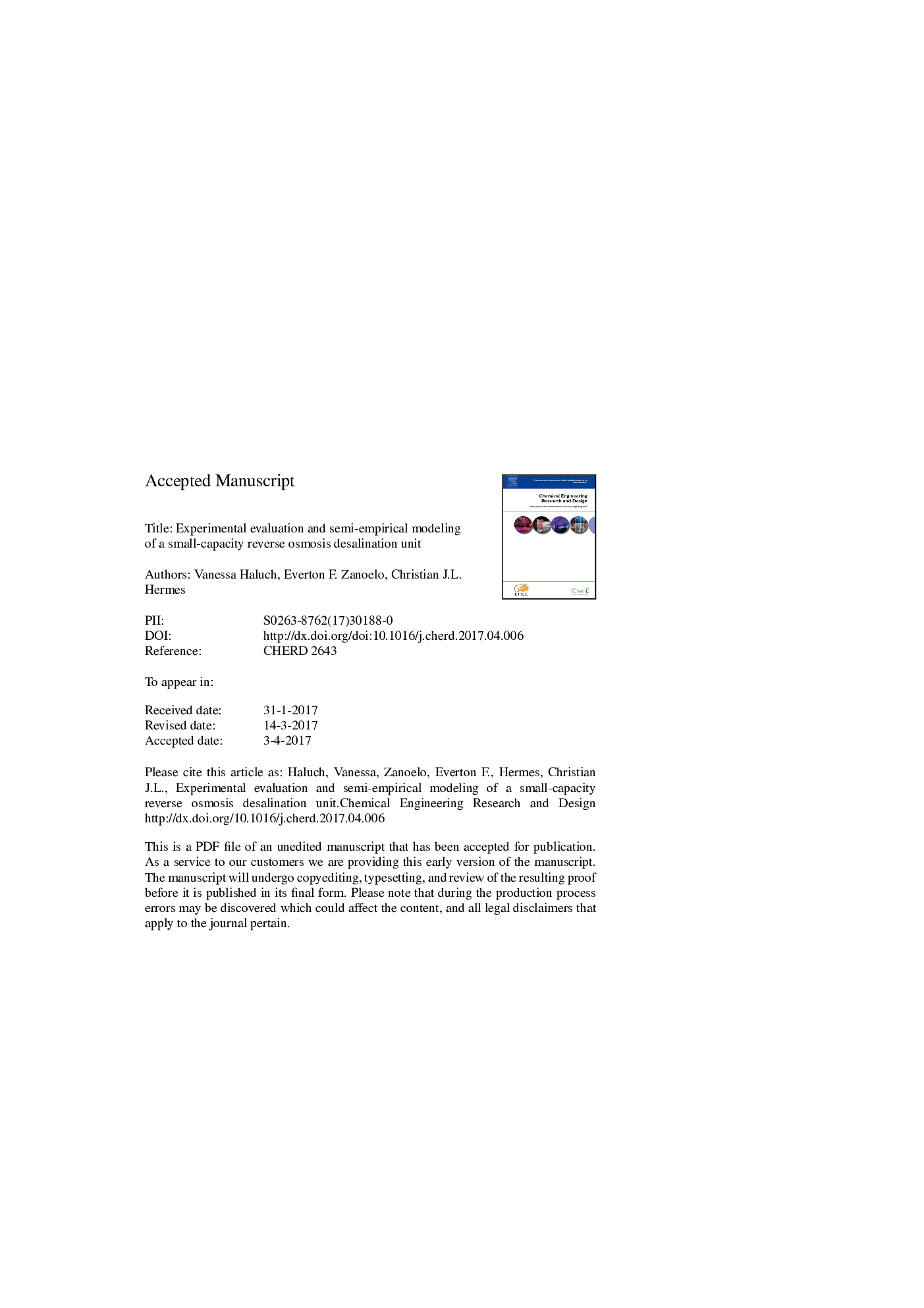| Article ID | Journal | Published Year | Pages | File Type |
|---|---|---|---|---|
| 4987176 | Chemical Engineering Research and Design | 2017 | 35 Pages |
Abstract
The present paper carries out a performance assessment of a small-capacity reverse osmosis system. Semi-empirical models to predict the exergy efficiency, the volumetric flow rate of permeate, and the salt rejection as functions of the feed water concentration, and the pump and the membrane characteristics were proposed. An experimental setup was designed and constructed to obtain the key process parameters required for the analysis and validation of the models. Experiments were conducted following a full factorial design in order to point out the most influencing factors affecting the performance indicators. Comparisons between experimental data and model predictions were also reported. It was found that the feed concentration of salt is the most important factor affecting the exergy efficiency, the volumetric flow rate of permeate, and the salt rejection. It was also observed that there exists an optimal feed concentration which maximizes the salt rejection. When compared to the experimental data, the semi-empirical models predictions agreed to their experimental counterparts within the measurement uncertainties thresholds.
Related Topics
Physical Sciences and Engineering
Chemical Engineering
Filtration and Separation
Authors
Vanessa Haluch, Everton F. Zanoelo, Christian J.L. Hermes,
